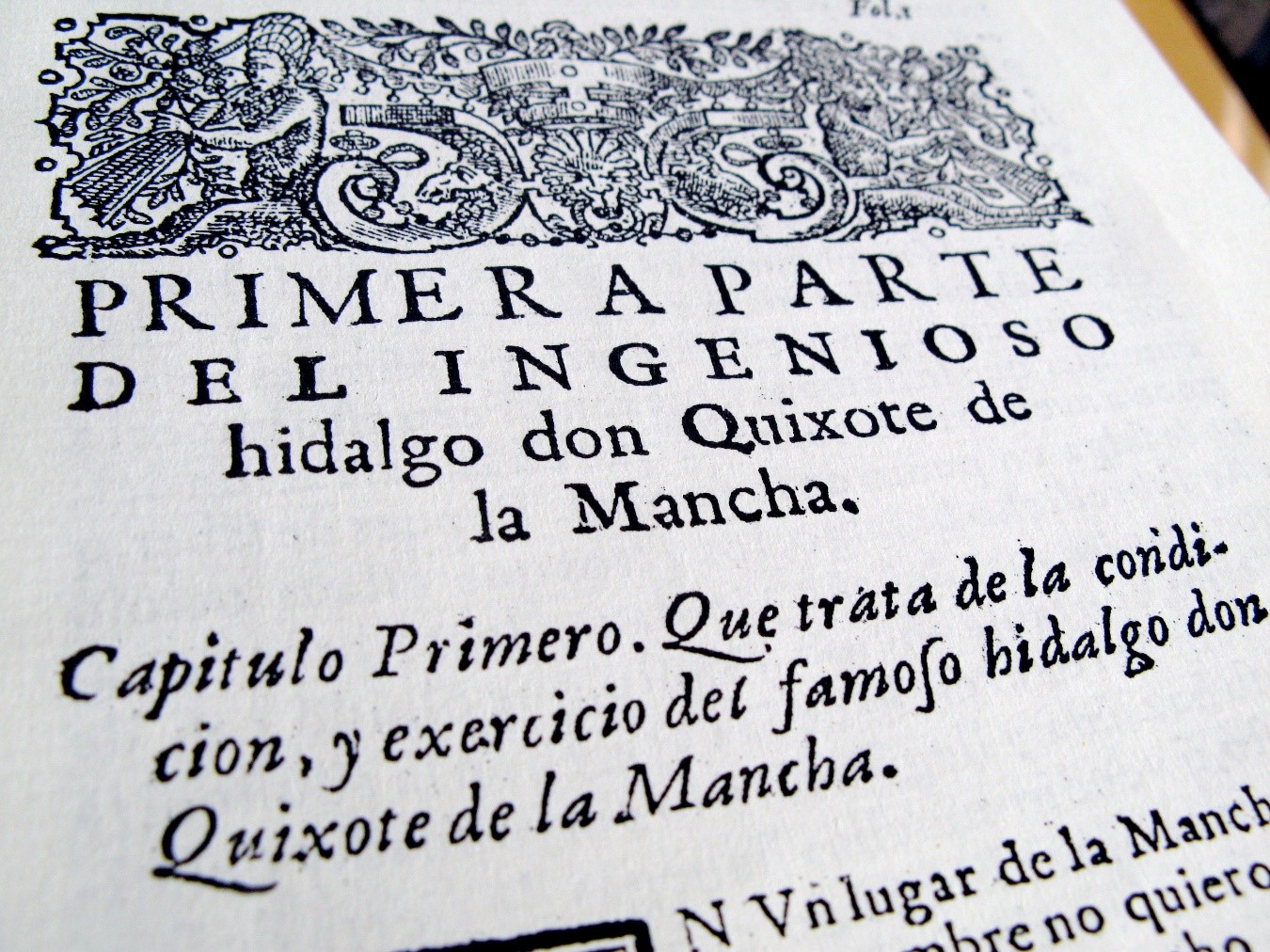
Spanish has changed a lot since don quixote
If you read an original version of The Ingenious Sir Quixote of La Mancha, you wouldn’t understand many words even if you are a Spanish native-speaker. Like all languages, Spanish has evolved to a point where those old beautiful paragraphs from Miguel de Cervantes Saavedra’s pen seem now very strange. Better or worse? It is a matter of taste.
Languages are ever-changing because they are so alive you could almost see their cells running through the pages of a book. Language lovers appreciate the fact that both the academy and users build together their path, just like a child learning from their teachers and parents.
If you track back in History the progression of English, you would easily find many references to the Old English, Middle English and Modern English periods. The same happens with French, clearly distinguishing between ancien français, moyen français and français moderne. In German, before the Neuhochdeutsch, there were AIthochdeutsch and Mittelhochdeutsch.
In Spanish, it’s surprising the absence of the subject in the majority of manuals and monographic studies. According to the most widespread conception in Hispanic philology, the evolution of the Spanish language takes place in two stages, one ancient and one modern. The first one goes from the origins until the end of the fifteenth century, the second from the sixteenth century to the present day.
The dividing line between the two periods is based on three occurrences of political transcendence:
1. the union of Castile and Aragon,
2. the conquest of the kingdom of Granada, and
3. the discovery of America.
On the cultural level, these years are the threshold of the Golden Age: language benefits from a new literary aesthetics, becoming at the same time an object of study of humanists and as an instrument of an incipient national culture, according to Antonio de Nebrija in the prologue of his famous grammar.
Among the few exceptions it is worth mentioning R. J. Cuervo, who points out – in the introduction to his Dictionary of Construction and Regime– that he chose the year 1500 as the limit of the pre-classic period due to the strengthening of political unity and the rise of court culture that occurred during the reign of the Catholic Monarchs.
A few lessons of Old Spanish
· It linked the preposition with the adjectives éste, ella y ése, saying deste, della, desta, deste. It avoided the contraction of prepositions: de el señor, a el señor.
· Conversely, they gave indistinctly the two genres to many nouns that in our time have only one: calor, desorden, enigma, fraude, mapa, olor, rebelión, etc.
· When the infinitive was modified by the complementary lo, la, le, it changed the final r of the verb to an l, which formed an ll in the last syllable: escribillo, tenello.
Are you ready for Don Quixote? Here it goes the beginning, enjoy!
En un lugar de la Mancha, de cuyo nombre no quiero acordarme, no ha mucho tiempo que vivía un hidalgo de los de lanza en astillero, adarga antigua, rocín flaco y galgo corredor. Una olla de algo más vaca que carnero, salpicón las más noches, duelos y quebrantos los sábados, lantejas los viernes, algún palomino de añadidura los domingos, consumían las tres cuartas partes de su hacienda. El resto della concluían sayo de velarte, calzas de velludo para las fiestas, con sus pantuflos de lo mesmo, y los días de entresemana se honraba con su vellorí de lo más fino. Tenía en su casa una ama que pasaba de los cuarenta, y una sobrina que no llegaba a los veinte, y un mozo de campo y plaza, que así ensillaba el rocín como tomaba la podadera. Frisaba la edad de nuestro hidalgo con los cincuenta años; era de complexión recia, seco de carnes, enjuto de rostro, gran madrugador y amigo de la caza. Quieren decir que tenía el sobrenombre de Quijada, o Quesada, que en esto hay alguna diferencia en los autores que deste caso escriben; aunque, por conjeturas verosímiles, se deja entender que se llamaba Quejana. Pero esto importa poco a nuestro cuento; basta que en la narración dél no se salga un punto de la verdad.
Contact us at: outsourcers@translatorpub.com




